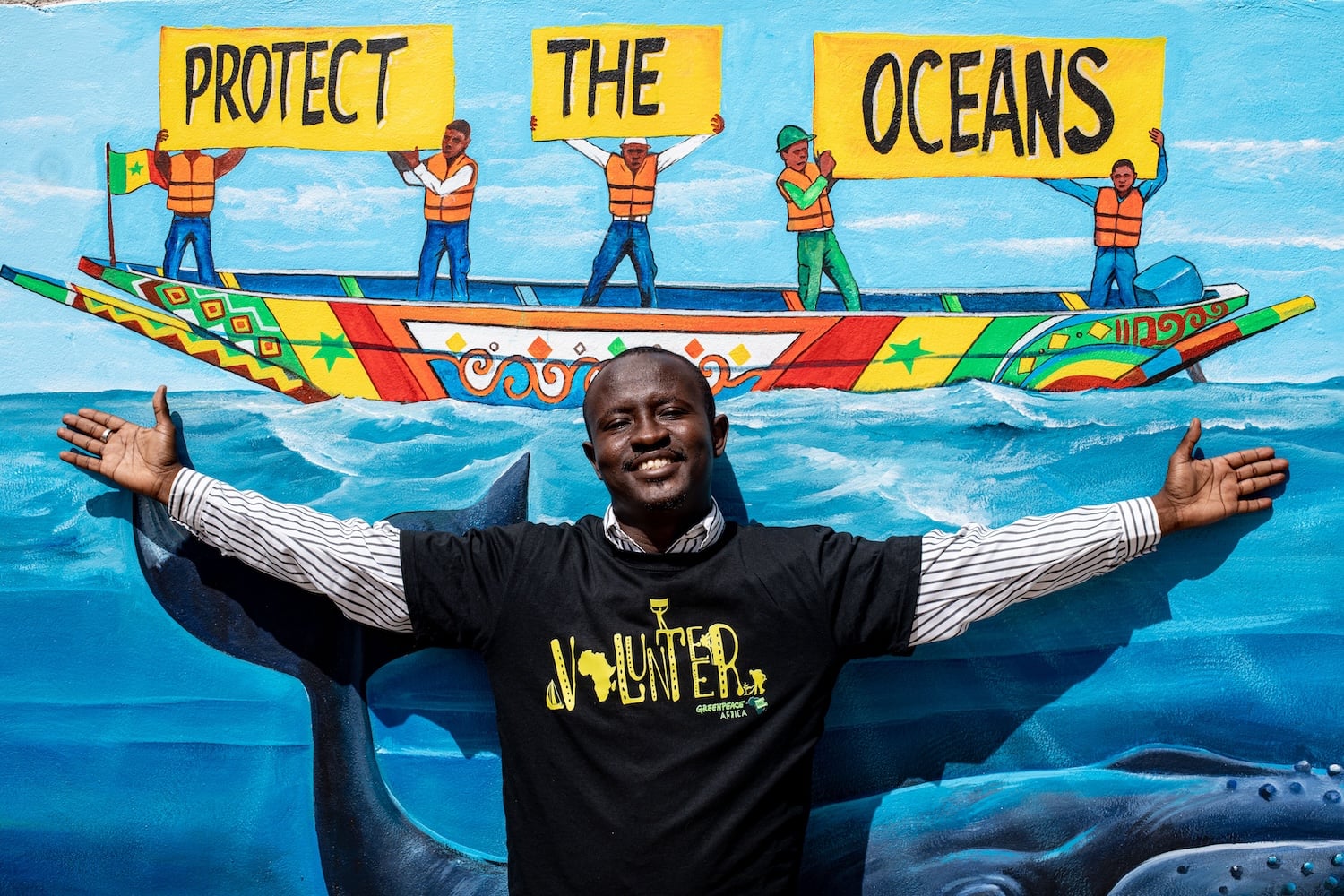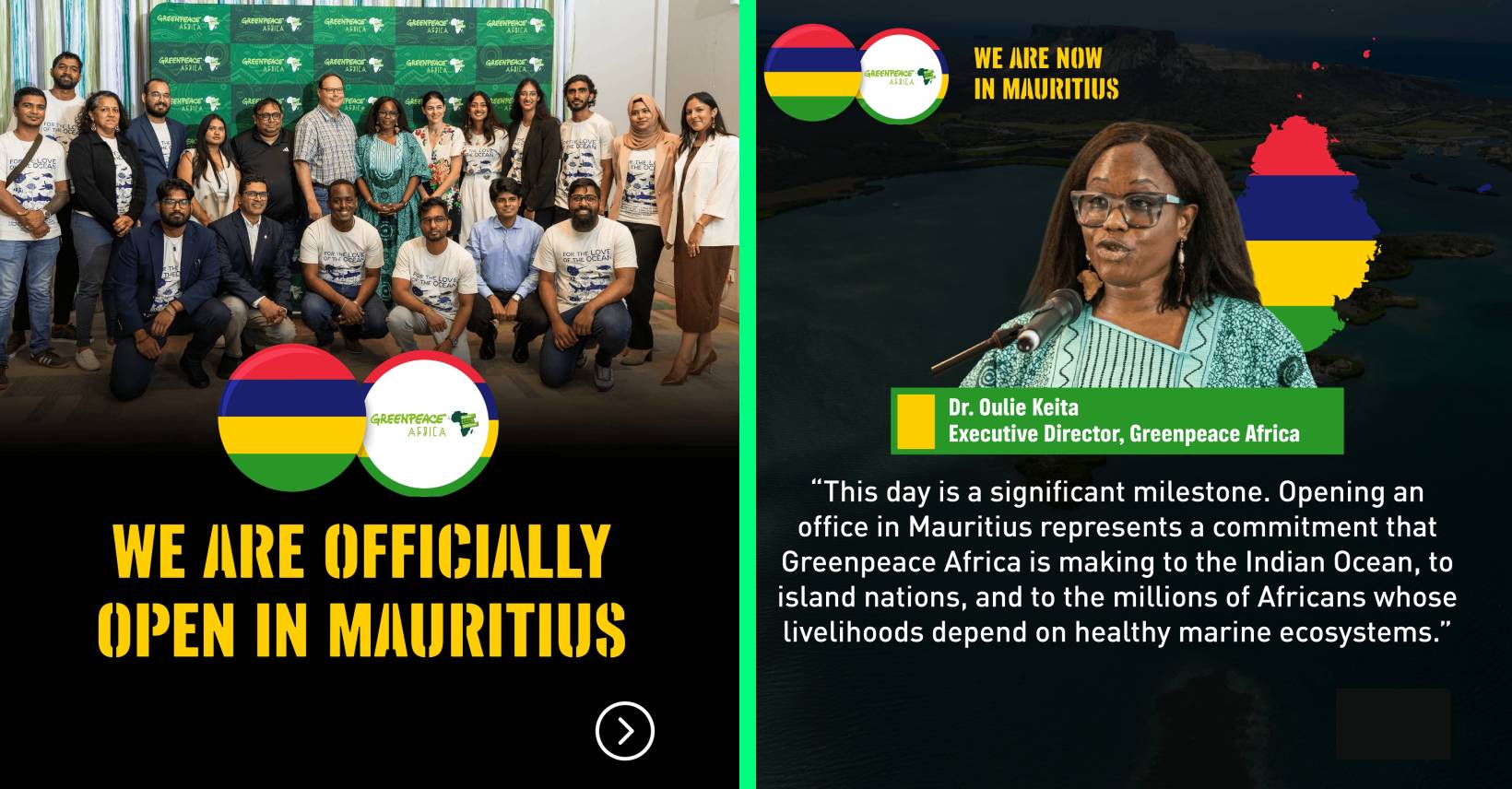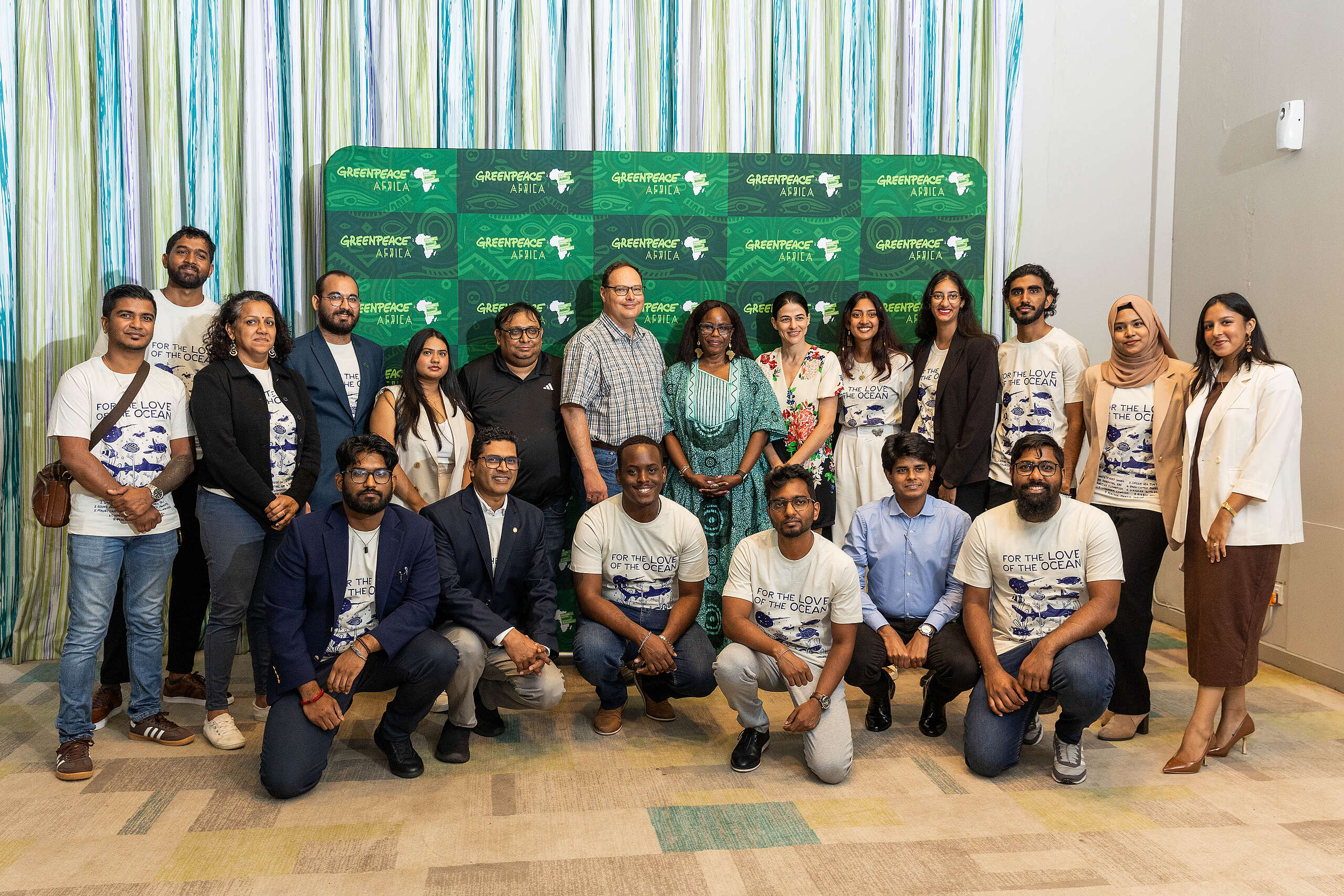
Dr. Oulie Keita
Greenpeace Africa Executive Director
A famous African saying goes, “Until the lion learns to write, every story will glorify the hunter.” It’s a reminder that power is not only about who acts, but who narrates. For centuries, Africa has been acted upon, extracted from, spoken for, and defined by the ambitions of others. The July 9 White House summit between Donald Trump and five African presidents was no exception.
Liberia, Senegal, Gabon, Mauritania, and Guinea-Bissau were invited to Washington in what was framed as a moment of renewed engagement. On the surface, it looked like diplomacy. But beneath the photo ops, the summit revealed the same old script: a transactional meeting staged to secure resources, showcase influence, and control the narrative with Africa once again playing the role of the “useful partner.”
Trump praised Liberia’s president for his “beautiful English.” A compliment? Maybe. But also a telling moment that revealed how African leadership continues to be validated not for substance, but for proximity to Western norms. That single comment, widely criticized for its tone, exposed a deeper extractive worldview dressed up as trade and diplomacy.
The summit’s real purpose wasn’t about building relationships. It was about securing critical minerals, managing migration, and pushing a rhetoric of “aid to trade” that, in practice, reinforces the very asymmetries it claims to end.
Let’s not sugarcoat it. The recent summit wasn’t about African leadership. It wasn’t about partnership either. It was about what Africa could give, not what it needs. Five countries, five flags, and one unspoken message: come with your commodities, not your conditions.
Take Guinea-Conakry. It’s the world’s biggest exporter of bauxite, the stuff that powers aluminum in everything from airplanes to smartphones. But almost none of it is refined locally. Communities in Boké breathe toxic dust, lose their farmland, and drink polluted water, while mining giants rake in billions. Guinea-Bissau and Liberia? Still in the exploration phase, but already being courted with backroom deals. The risk? Signing away futures before institutions can even spell “regulation.”
Then there’s Senegal and Mauritania. They don’t just offer strategic coastline but they sit on gas fields and global shipping routes. Fossil fuel firms are circling like vultures, selling offshore extraction as “development,” even as local fisheries collapse and marine ecosystems buckle under pressure.
When Africa is invited to the table only for what it owns, not for who it is, that’s not partnership. That’s exploitation.
Trump’s so-called pivot from aid to trade also came with strings. While development assistance is being slashed, tariffs have been introduced on African goods. Behind closed doors, Trump floated migration deals asking African states to accept deported migrants from other regions in exchange for economic favors. This isn’t a new kind of cooperation. It’s old-school neocolonial policy outsourcing. Africa is being asked to absorb the fallout of Northern crises from supply chain breakdowns to border politics in return for access to a shrinking slice of the global market.
Meanwhile, Chinese and Russian media didn’t bother with diplomacy. They framed the summit for what it was: a scramble. The U.S. wants African minerals to power its green transition and counter Beijing’s growing presence. Trump may call it strategy. But to most observers, this is competition and Africa is the field, not the referee.
What’s more troubling is that African nations are still negotiating solo. There is no bloc strategy, no shared doctrine. Guinea-Bissau’s President Embaló was the only leader to publicly reject Trump’s deportation proposal, a rare moment of pushback. Yet even he stressed his openness to the U.S., China, and Russia alike. That pragmatism is understandable. But without unity, Africa remains vulnerable to deals that serve external agendas far more than our own.
At Greenpeace Africa, we know this kind of diplomacy isn’t just outdated, it’s dangerous. Africa can’t afford backroom deals that dress up resource grabs as development, if it’s a real partnership, it should be rooted in dignity, not extraction. And what stood out most at the summit was what wasn’t said. There was no mention of climate justice even though every country in that room is already feeling the heat.
This wasn’t a win. It was a warning. Presence does not equal influence. If Africa is to rewrite this story, it must stop reacting and start asserting not as scattered states, but as a united voice with shared priorities, red lines, and the courage to say no.
Because until the lion learns to write, until Africa tells its own story, sets its own terms, and negotiates on its own feet, the hunter will keep getting the glory.
And the table will remain just another hunting ground.



